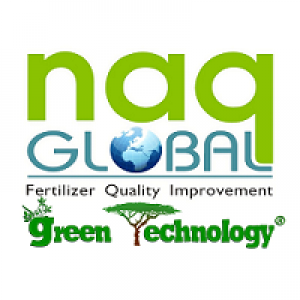
Naqglobal
Uploaded on Aug 26, 2025
Category
Environment & Nature
Flocculant agents are very useful in increasing the production and quality of phosphoric acid in the process of manufacturing fertilizers. When there is a better separation of solids and liquids, these products ensure that phosphoric acid plant products are purer and more efficient.
Category
Environment & Nature
How Flocculants Agents Enhanced Phosphoric Acid Production
How Flocculants Agents Enhanced
Phosphoric Acid Production
Flocculant agents are very useful in increasing the production and quality of
phosphoric acid in the process of manufacturing fertilizers. When there is a
better separation of solids and liquids, these products ensure that
phosphoric acid plant products are purer and more efficient.
How Do Flocculants Boost Phosphoric Acid Production?
In Phosphoric Acid Plants Products, proper chemical balance and
separation of solids and liquids are absolute requirements. Flocculants are
used to enhance this process, particularly in the production of phosphoric
acid. These reagents facilitate the aggregation of small suspended particles
in the acid solution into larger particles called flocs. This reduces the
separation of solids and liquid, resulting in clearer and better quality
phosphoric acid.
Role of Flocculants in Phosphoric Acid Plants
The flocculants are chemical reagents used to assist in catching the
particles together so that they are relatively easy to separate from the
liquid.
In the phosphoric acid plants, they are utilized to:
●Separation of suspended solids
●Enhance filtration performance
●Improve the clarity of the end product
●Smaller operating expenses
Benefits of Using Flocculants in Fertilizer
Production
● Increased Product Quality:
Flocculants allow phosphoric acid to contain fewer impurities, which is very
important in the production of high-quality fertilizers.
● Increased Filtration:
The net effect of forming big flocs is that the filtering process becomes
quicker and more efficient, speeding up the production process.
● Increased Recovery Percentage:
By using flocculants in phosphoric acid, plants can recover more of the acid
in the wet process, which reduces waste.
● Cost Efficiency:
Better separation decreases the requirements of using any extra processing
chemicals, making it cost-effective.
Applications in Phosphoric Acid Plants
Flocculants for phosphoric acid plant products are used:
● Production of phosphoric acid by the Wet process
● Plating of neutralizing and acid solutions
●Enhancement of phosphoric acid grade fertilizer in quality
Conclusion
The importance of flocculants to the products of phosphoric acid plants
cannot be undermined in the current scenario of the fertilizer
industry. Flocculants ensure that phosphoric acid is purer and clearer, a
factor that helps generate higher efficiency and lower production cost as
well as fertilizers of better quality. Their application reduces impurities,
promotes sustainable production of their plant, and improves the plant
performance. As the demand for fertilizers is going up, the use of
sophisticated flocculants to phosphoric acid will be even more necessary,
thus becoming a central element of providing consistent, stable, and
environmentally friendly results to the fertilizer sector.
FAQ
Q1. What are flocculants in the role of producing
phosphoric acid?
As they were used to separate a fine solid particles in the acid to increase
clarity, purity, and overall efficiency of the process.
Q2. What is the role played by flocculants in lowering
the quality of phosphoric acid?
They flocculate impurities and other suspended material into larger masses
that are easier to remove, leaving phosphoric acid at a higher grade and
cleaner.
Q3. Would Can flocculants cut phosphoric acid plant
costs?
Yes, flocculants reduce waste materials, advance filtration, and promote
process velocity, which all contribute to operational cost savings.
Topic Source
https://naqglobal.home.blog/2025/08/25/how-flocculants-agents-enhanced-
phosphoric-acid-production/

Comments